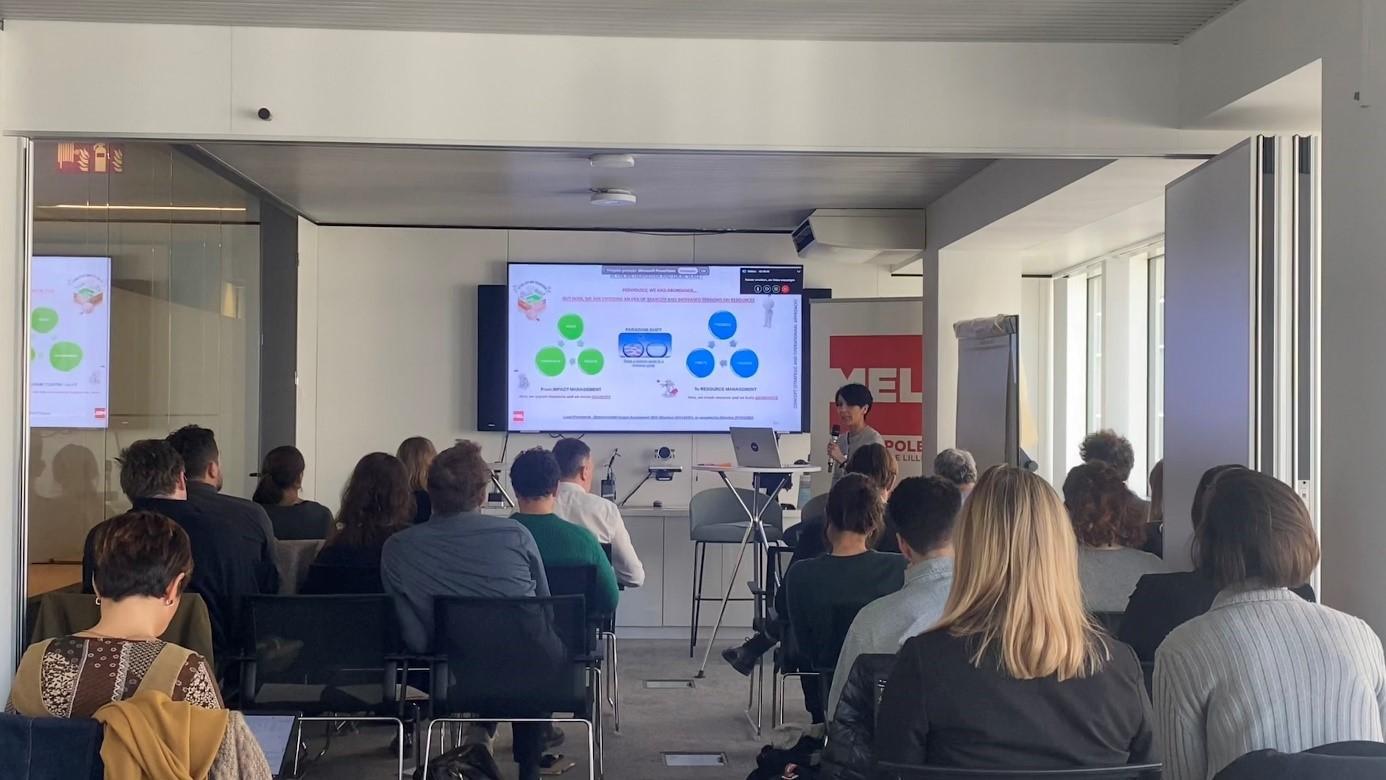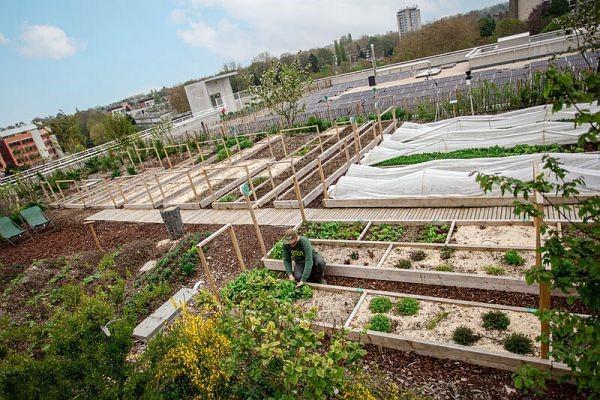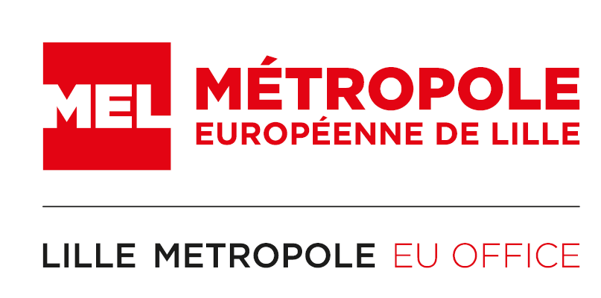
On March 19th, 2025, Lille Metropole organized a seminar on soil health entitled “from degraded soils to territorial resilience” in its Brussels office. This event provided a comprehensive update on the EU Soil Mission and its associated living labs, while also showcasing various soil health project such as the HuMUS projects and the SoilScape project. The seminar highlighted Lille Metropole's commitment to supporting local agriculture and sustainable urban development, emphasizing the importance of soil health in achieving these goals.
Program highlights and key speakers
The seminar featured a diverse range of speakers and presentations that offered valuable insights into the current state and future prospects of soil health initiatives. Paola Eulalio from the European Commission provided an update on the EU Soil Mission, discussing its policy, vision, implementation, and key projects. Isabelle Couture presented the European Network of Living Labs (ENoLL) and its extensive network of living labs and open calls.
Testimonials from recently launched living labs in the framework of iCOSHELLs were shared by Daniel Cassolà from ISINNOVA and Itziar Vidorreta from ESKILARA. Léa Minier from VEGEPOLYS VALLEY introduced the HuMUS project, (in which Lille Metropole has a pilot project – see below), while Sam Ottoy from the University of Hasselt discussed his local research related to the role of vegetation and trees. Alec Walker-Love presented the SOILSCAPE project, emphasizing the role of arts in enhancing soil literacy and health.
Jamila Bentrar, Urban Agriculture Project Manager at Lille Metropole, provided an extensive overview of Lille Metropole's strategy and local projects related to soil health. She highlighted the SOS SOILS PLAN, a strategic and operational soil safeguarding plan aimed at preserving, valorising, and creating soil resources.

Projects led by Lille Metropole
Lille Metropole is actively involved in several national and European programs aimed at transforming its industrial legacy into sustainable urban development. The metropole is committed to supporting local agriculture and quality food for all, with 45% of its territory dedicated to cultivated land. In this context, Lille Metropole is closely following the development of the EU Mission “a soil deal for Europe”.
METROLAND Project
The METROLAND project aims to shift European urban planning policies from a reactive, impact-based approach to a proactive, resource-based approaches. Starting soon under the ESPON program, it involves Prague (CZ) as the lead partner, along with Vienna (AT), Brussels Capital Region (BE), Riga (LV), Turin (IT), Amsterdam (NL), and Lille Metropole.
URSOILL and the REPONSE project
The REPONSE research program focuses on revealing the nourishing potential of soil and its ecosystem. Instead of replacing polluted topsoil with healthy soil (an increasingly scarce resource), it aims to depollute soil by mixing healthy materials to restore functions like fertility, biodiversity, carbon sequestration, and water storage. This experimentation supports four urban agricultural projects and takes place in the European project URSOILL (Innovative Solutions for sustainable urban soil restoration through living labs), led by Sweden, along with Luxembourg, Italy, Macedonia, Greece, and France (Basque Country).
HuMUS project and REVALS
The REVALS (REveal and Valorize Life of Soils) project, part of the European HuMUS project, applies ecological accounting tools to valorize the environmental and social benefits of urban farms. Lille Metropole supports the urban farm “Le Trichon” located in Roubaix (one of the ninety-five municipalities in Lille Metropole) to balance its business model. In partnership with the association of urban farmers and economic researchers, they aims to monetise the environmental (restoring soils functions) and social (creating links between inhabitants, soil health awareness solidarity prices for local inhabitants, events…) values. This project is part of the HuMUS (Healthy MUnicipality Soils) project with Italy (leader), Macedonia, Luxembourg, Belgium, Netherlands, Austria, Bulgaria, Ukraine, Poland, Spain.
Additionally, Lille Metropole is planning to transform a 3.3-hectare site into a Food and Agricultural Experimentation and Innovation Center. This center will focus on testing new crop varieties, developing innovative agricultural techniques, and raising awareness about food safety and nutritional quality.

Fruitful collaborations and future perspectives
The seminar's workshops and network lunch provided a valuable opportunity for participants to identify common interests, potential collaborations, and share information and tools. A shared Miro board was created to facilitate the exchange of best practices and future perspectives. Follow-up meetings have been organized to build on the potential collaborations identified during the event.
Don’t hesitate to contact us if you have questions about the projects or if you are interested in collaborating on European initiatives.

